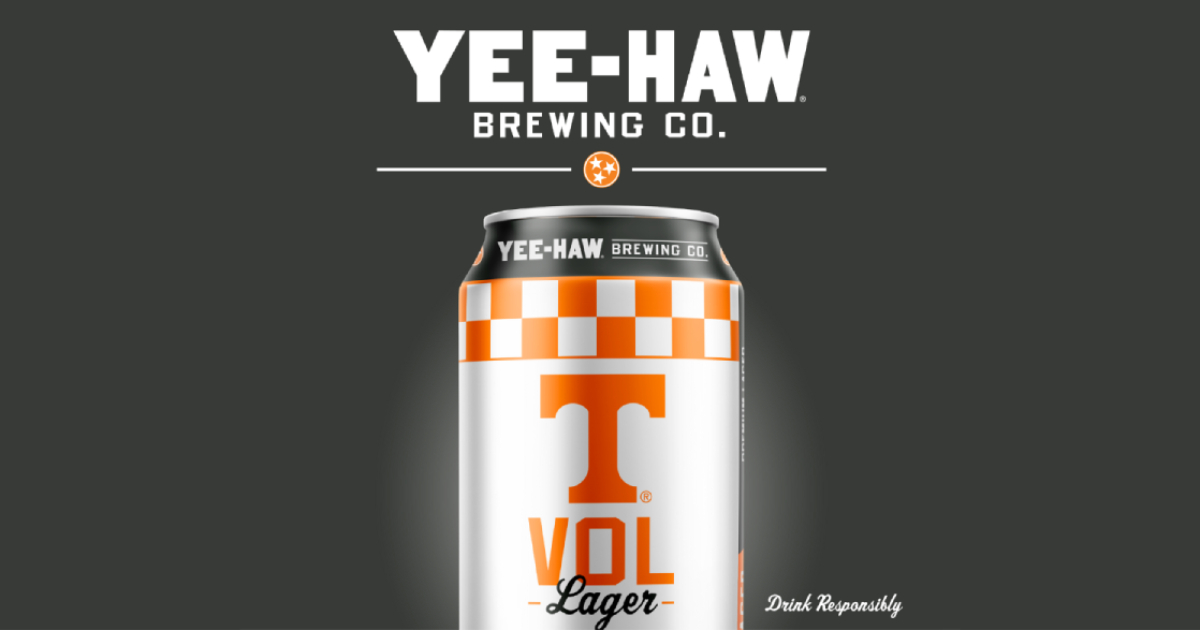Universities, Colleges Tap into Alcohol

By Mark Seavy
A growing number of universities and colleges are tapping into co-branded beer and spirits.
The recipe for these deals varies. They typically run one to five years and carry 10-20% royalty rates and target alumni and a broader fan base rather than students, many of whom are underage.
And while schools co-branding with alcohol and beer can be traced as far back as Georgia businessman Bill Laite, who was sued for trademark infringement by the University of Georgia (UGA) after he launched Laite’s Battlin’ Bulldog Beer in the 1980s, there has been a steady flow of partnerships in recent years.
Learfield’s CLC, for example, has licensing deals for alcoholic beverages with 93 of the 800 schools it manages, up 57.6% from fiscal year 2023 when there were 59. And the number of craft breweries involved has jumped to 36 (up from 16 in 2023).
Much of the growth has come from schools easing restrictions on the licensing of their brands for alcohol, which has opened a previously untapped licensing stream. Some agreements also coincided with rule changes starting in 2019 that allowed alcohol sales in stadiums, which spurred the Southeastern Conference to lift restrictions on sales in public seating areas.
Yee-Haw Brewing, for example, signed a licensing agreement with the University of Tennessee last year to develop the school’s first co-branded craft beer as well as merchandise (t-shirts, hoodies, and taps). The Vol Lager, which was developed in four months, is sold through the brewery’s four tap rooms (a fifth will open in Mrytle Beach, SC in spring 2026 in a joint venture with whiskey/moonshine supplier Ole Smokey Distillery) in addition to being available in a bar at Lindsey Nelson baseball stadium and at the Social Deck at Neyland football stadium on the UT campus. The lager has generated “significant volume” since sales started last fall for Yee-Haw, which has annual capacity of 10,000-12,000 barrels, Yee-Haw CEO Jennifer Podhajsky said.
The UGA, whose Board of Regents as recently as 2005 barred licensing of the brand for alcohol, cinched a deal with Creature Comfort Brewing last year for beer. Milwaukee, WI-based Third Space Brewing, meanwhile, signed a deal last fall with Marquette University to create Marquette Golden Ale, with 15% of the revenue going back to the school.
“Alcohol appears to be that natural progression of how you improve that fan experience and the landscape has changed in that universities are open now to different types of alcohol deals and that has created opportunities for small craft beer companies,” Podhajsky said. “It is attractive for our partners in that we are adding incremental revenue and not just a sweatshirt, because they already have that already. They now have their first co-branded alcohol product that is completely incremental.”
That additional revenue hasn’t gone unnoticed by the schools’ collectives, which, among other things, manage Name, Image, and Licensing (NIL) programs. Des Moines, IA-based Exile Brewing grew by 6,000 barrels after it starting licensed production of Swarm Golden Ale in 2023 as part of an agreement with the University of Iowa’s Swarm Collective. And Texas A&M switched a beer partnership from Anheuser-Busch InBev to Molson Coors, whose craft subsidiary Revolver Brewing makes Block T Blonde Ale. ABI previously produced 12th Man Lager through its Karbach Brewing Co. subsidiary.
Despite the presence of these larger brewers, most schools are opting for local companies both as a show of support for businesses in their market and to target where demand for the beer will be highest, licensing executives said.
“Choosing a craft beer also helped position the product toward an older audience since craft beers typically have a more mature taste profile and premium price point, which naturally differentiates them from lighter, more mass-market options,” a collegiate licensing executive said.
While beer remains the elixir of choice for many schools, some have expanded into spirits and wine. The University of New Mexico licensed Dry Point Distillery for Pistol Pete Six-Shooter Whiskey, an homage to the school’s mascot since the 1950s, and also has deal for wine with D.H. Lescombes. Furman University, meanwhile, licensed Ironclad Distillery for a 100-proof limited-edition FU All the Time bourbon.
Non-alcohol licensed beverages, however, are less prevalent given the presence of Coca-Cola Co. and PepsiCo on college and university campuses.
“Outside of alcohol, there hasn’t as much activity in the beverage licensing space at the collegiate level,” a licensing executive said. “The regional nature of collegiate sports licensing makes it challenging for licensees to successfully launch products like sodas, teas, or other non-alcoholic beverages. On top of that, many universities have existing pouring rights agreements with major beverage companies, which complicate or even preclude the ability to execute a standalone licensed beverage deal in those categories.”




